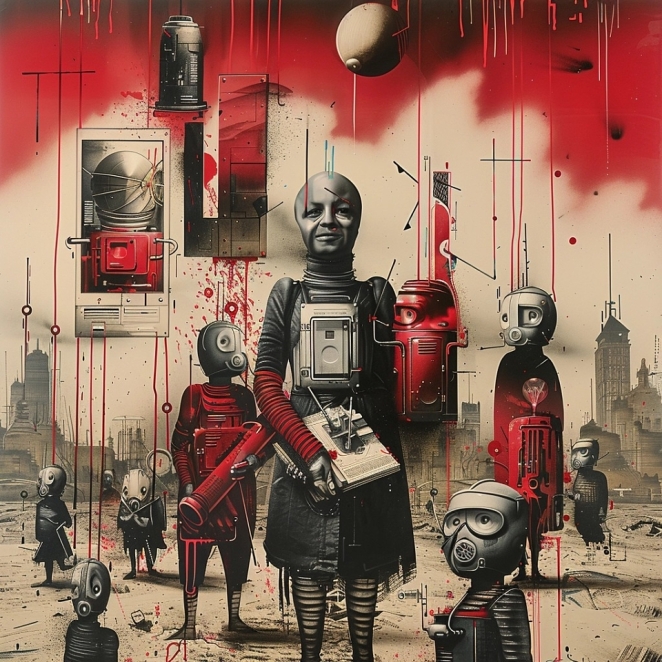Advertising has always been at the forefront of technological innovation. From the advent of radio and television to the rise of the internet, each new medium has transformed how brands communicate with audiences. In recent years, artificial intelligence (AI) has emerged as the latest revolutionary force in the advertising landscape. To understand AI's impact on modern advertising, it is essential to explore its historical evolution and the transformative role it plays today.
Early Days of AI in Advertising
The integration of AI into advertising began modestly. Initially, AI was used for tasks like data analysis and automation of repetitive processes. Early AI applications included programmatic advertising, where algorithms automated the buying of ad space based on user data. While these applications improved efficiency, they were largely behind the scenes and did not drastically change the creative process.
As AI technology advanced, its capabilities expanded. Machine learning algorithms became adept at analysing vast amounts of data to identify patterns and trends, enabling more precise targeting of ads. Personalization became the buzzword, with AI-driven platforms tailoring advertisements to individual consumer preferences. This shift marked a significant step forward in enhancing the relevance and effectiveness of advertising campaigns.

Marc Posch
Rosie Copland-Mann, Strategy Director at UNIT9, highlights this evolution: "While AI’s role within advertising campaigns has predominantly been PR-focussed up until recently, we’re now seeing it make a real difference to the quality of campaigns and the efficiency of their creation. With the technology developing at a rapid rate and the continued democratisation of tools, we’re seeing exciting new avenues open up - whether it’s enhancing creativity within a campaign, driving personalisation amongst audiences, or accelerating workflows within production teams."
AI in Creative Development
One of the most exciting developments in recent years is AI's ability to enhance creativity. AI-powered tools can now generate ideas, create content, and even design visuals. These tools do not replace human creativity but augment it, providing new avenues for creative exploration. For instance, AI can analyse consumer sentiment and trending topics to suggest campaign themes that resonate with the target audience.
Moreover, AI-driven platforms can produce multiple variations of an ad tailored to different audience segments. This level of personalization was previously unimaginable, allowing brands to connect with consumers on a deeper level. By automating parts of the creative process, AI frees up human creatives to focus on strategic and high-level conceptual work.
Seamless Integration into Everyday Life
The successful adoption of AI in advertising mirrors the broader trend of technology becoming seamlessly integrated into daily life. As Rosie Copland-Mann notes, "Historically, the most successful adoption of technology happens when it becomes invisible - think tapping a phone screen to connect with someone on the other side of the world, or pressing a button to unlock your car - and it’s no different when it comes to AI.
The technology is already integrated seamlessly into many daily activities we don’t even think about - Netflix algorithms, GPS navigation, Spotify music suggestions. Just like its tech predecessors, the more seamless the integration, the wider the adoption will be - and the more we will see it incorporated into the advertising process as standard, from concept to delivery."
This seamless integration is evident in how AI powers everyday tools without users even realizing it. From personalized content recommendations on streaming platforms to dynamic ad placements based on real-time data, AI operates behind the scenes to enhance user experiences and drive engagement.
The Future of AI in Advertising
Looking ahead, the role of AI in advertising will continue to expand. As AI technologies become more sophisticated and accessible, we can expect even greater levels of innovation. AI will likely play a crucial role in emerging advertising mediums, such as augmented reality (AR) and virtual reality (VR), creating immersive and highly personalized brand experiences.

Luciano Koenig Dupont
The future will also see AI driving greater efficiencies in ad production and distribution. Automation will streamline workflows, reducing time and costs while maintaining high-quality outputs. Brands that embrace AI will be better positioned to adapt to the fast-paced and ever-changing advertising landscape.
In conclusion, AI's role in modern advertising is transformative, driving both efficiency and creativity. From its early applications in data analysis to its current capabilities in enhancing creative processes and personalizing consumer experiences, AI is redefining what is possible in advertising. As Rosie Copland-Mann aptly states, the more seamlessly AI integrates into our daily lives, the more profound its impact will be on the advertising industry, ushering in a new era of innovation and connectivity.





